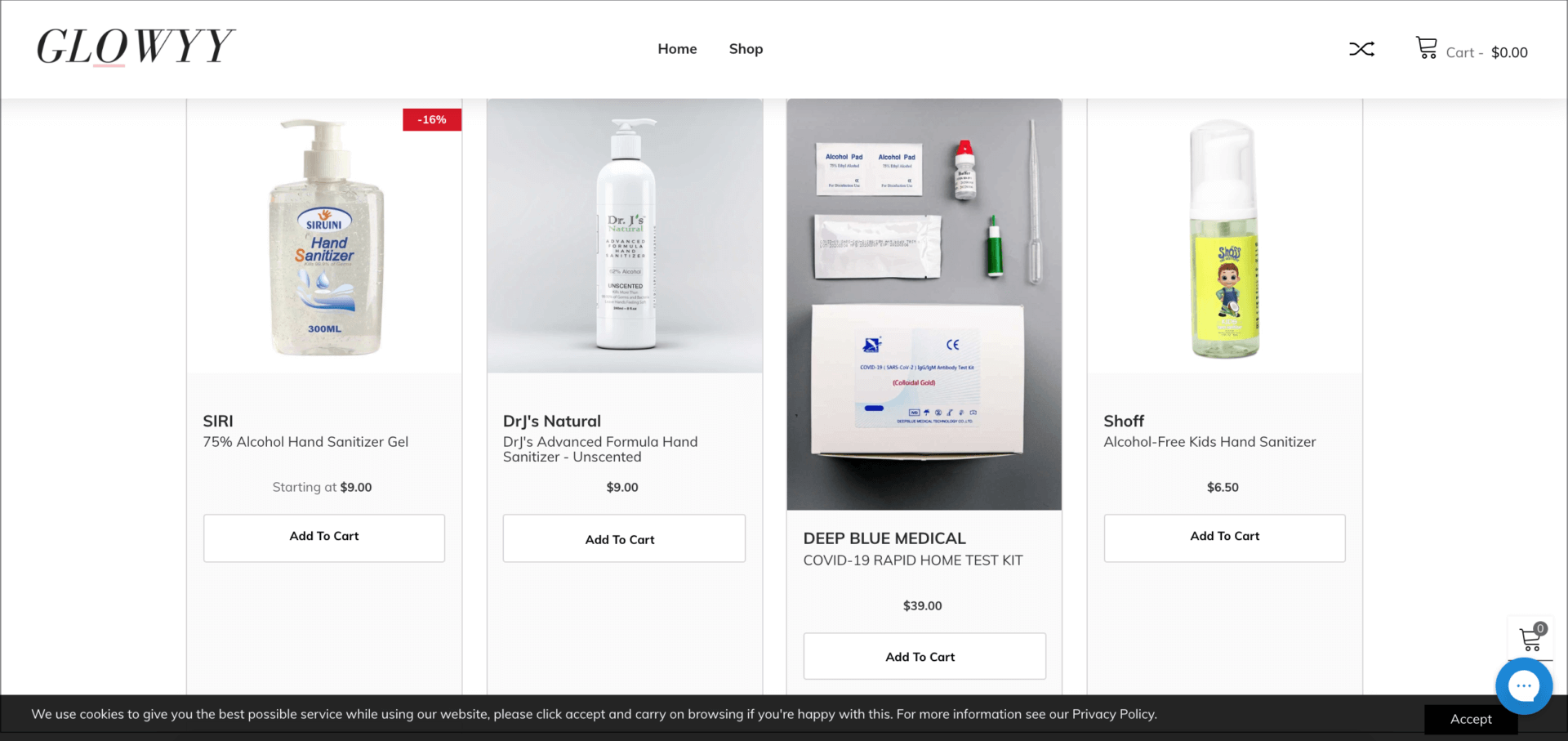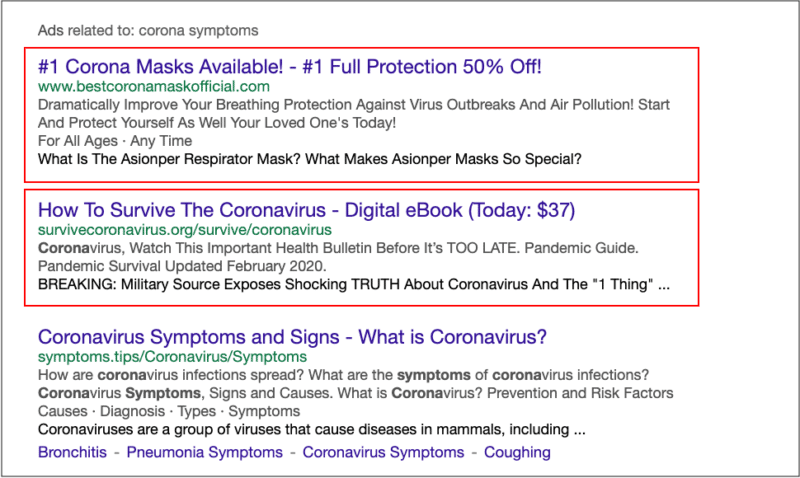There’s no doubting the impact that coronavirus has had on businesses around the world. From retail operations and restaurants shutting their doors completely, to Silicon Valley giants enforcing mandatory work-from-home procedures, the effects of COVID-19 have been widespread.
But against a sea of countless examples of sensible brands playing their part to slow the global pandemic and ensure customer and employee safety, are a mix of folks looking to profit by exploiting fear and misinformation online. In a vital step to combating these bad actors, Google recently announced that it would block all ads that appear to capitalize on the virus while helping the World Health Organization (WHO) and other government authorities run public service announcement ads in order to educate the general public.
The magnitude of Google’s measures is perhaps impossible to quantify. Google’s Trust and Safety team is working around the clock to safeguard consumers from phishing, conspiracy theories, malware and misinformation. Since these policies have been enacted, we’ve seen a significant decrease in the number of bad ads on the market. In this climate with many fearful for their health, the importance of removing ads that seek to exploit vulnerable consumers plays a major role in our fight to overcome this pandemic and resume our normal lives.
Despite new ad policies, implementation is a challenge
Stopping these behaviors from bad actors is easier said than done, however, and even with Google on the case, some questionable ads are slipping through the cracks. Serving approximately 30 billion impressions per day, and with search queries about COVID-19 so immense that it’s being designated the “biggest trend in Google search history,” the search giant faces a herculean task.
As a result of its recent policy changes, which include a temporary ban on ads for surgical face masks, it’s become that much more difficult to monitor questionable ads and take the necessary actions to protect consumers. For these reasons, we are still finding advertisers avoiding detection.
For example, on March 13, our team uncovered this advertisement from Glowyy.com on the search term “travel hand sanitizer.”

The words in the ad title and text of Glowyy’s ad are in line with the search terms. Clicking on the ad takes the consumer to this page:

And this is where the problem arises. In addition to hand sanitizer, this landing page is selling COVID-19 home testing kits, even though the Centers for Disease Control have not approved these types of kits. The consumer, who initially was looking to buy hand sanitizer, may instead purchase an unapproved testing kit. The landing page for this ad, therefore, is selling a product that is meant to capitalize on the coronavirus, and could be potentially dangerous not to the individual consumer and the health of the general population.
Combatting “fake news” amidst heightened confusion
Despite some brands successfully bypassing Google’s safeguarding efforts, ad monitoring is unquestionably a worthwhile practice. In 2018 alone, the search engine provider removed 2.3 billion “bad” ads and 28 million web pages deemed to be infringing on its advertising policies, and trends certainly suggest Q1 of 2020 will set records.
But it’s not enough for just Google to take strict steps to remove bad actors amidst erroneous Coronavirus prevention and price gouging. In addition to launching a COVID-19 dashboard to help consumers stay informed on case locations, infection, and protection, Microsoft appears to have banned ads for surgical face masks (although the company has yet to confirm they’ve officially enacted any policy changes).
Based on what we’ve found through our ad monitoring, Bing has not been as successful as Google in stopping these types of ads. It is unclear at this point whether bad ads are coming through because of insufficient policy changes or implementation challenges.
See the ads below that we found on Bing using when searching for the terms “corona symptoms.”

The top two ads aim to cash in on the anxieties of consumers and initiate panic-driven and impulsive purchases. But not only are these brands leveraging search engine advertisements to take advantage of the crisis, but they’re also utilizing domain names intended to maximize their persuasion tactics. While Bing’s policy changes remain somewhat unclear, these advertisements would most definitely be removed if they were run on Google.
With the above said, and taking into consideration the fact that Microsoft hasn’t actually confirmed they’re taking steps to thwart bad actors profiteering from this pandemic, Bing is a case study of what happens when you don’t have a quick response and effective ad monitoring and filtering strategies in place.
Search engines must pull together to thwart bad actors
As coronavirus continues to dominate the news cycle, forces us to stay indoors, and effectively turns business operations on their heads, the procedures being put in place by search engines to combat the spread of misinformation and exploitation of fear should be applauded.
Despite current practices proving to be less than perfect, Google is leading by example. With widespread anxiety fueling price gouging, panic buying and the spread of misinformation, it’s absolutely critical for Bing and other search engines to strive to keep the internet free of bad actors and protect its status as a place where consumers can search for the accurate information they need.
The post A look at Google’s recent COVID-19 related policies in search appeared first on Search Engine Land.
Source: IAB

